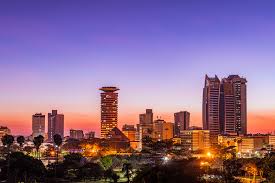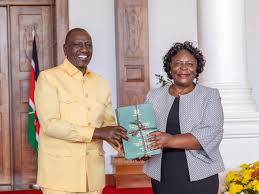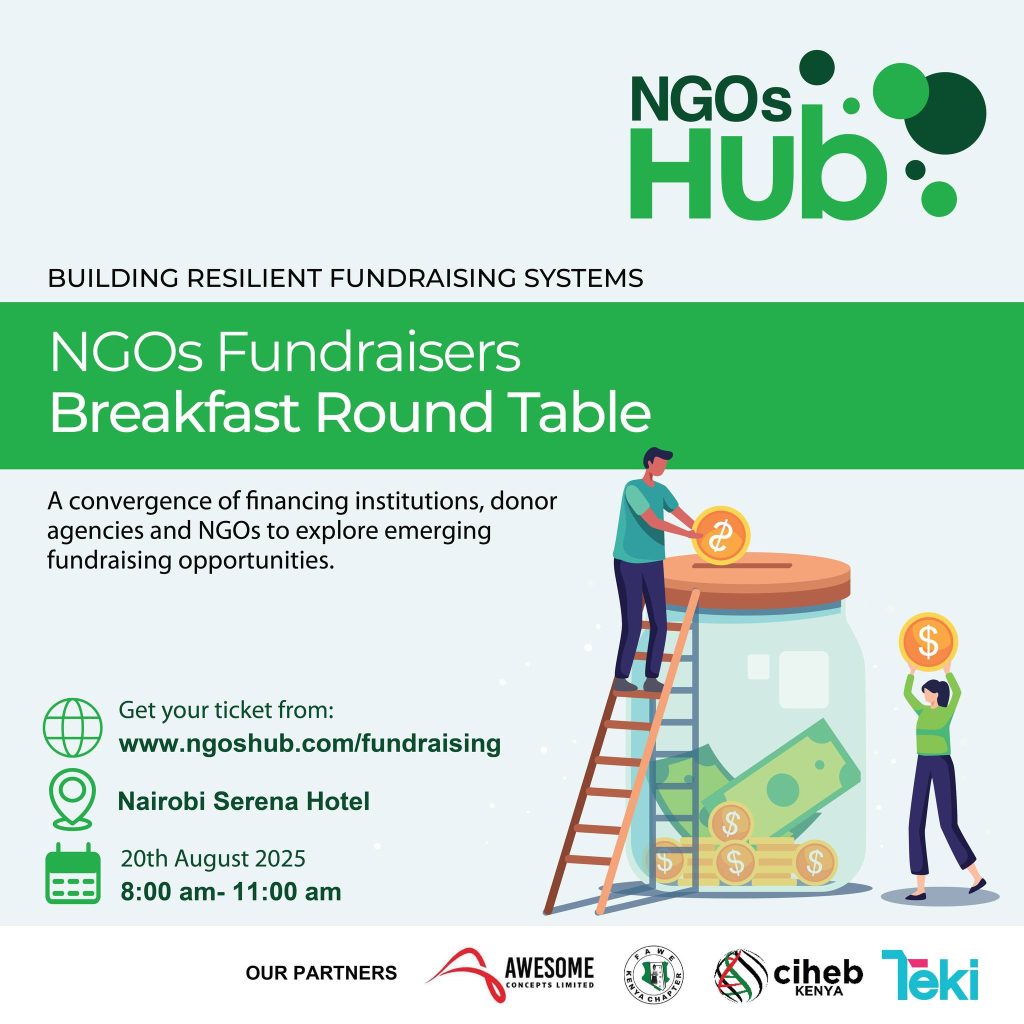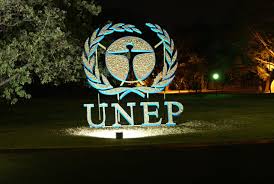By Wahome Ngatia
UNFPA, UNICEF and UN Women’s global operations are set to move to Nairobi by 2026. As a consequence, the premises at UNON will be increased where the meeting facilities will be increased by 20%. The UNGA gave the greenlight for the building to commence at a cost of $340 million (Ksh 43.8 billion). This is the first installment in our series exploring Nairobi as the Global South’s dominant capital for diplomacy.
“In Gigiri, Nairobi, you can sip coffee while overhearing a United Nations debate in three languages. Few cities in the Global South can claim such a scene.”
When you walk through Gigiri, the leafy Nairobi suburb that hosts the United Nations complex, you hear a medley of languages—Swahili mixing with French, Arabic blending with English, Chinese and Russian in equal measure. It is not unusual to find diplomats huddled over cappuccinos in Village Market, NGO executives darting between conferences, or expatriates exchanging gossip about the latest international assignment. This is the everyday rhythm of a city that has steadily grown into the undisputed hub of diplomacy in the Global South.
The making of a hub
Nairobi’s rise did not happen overnight. The city’s diplomatic journey began in the wake of independence in 1963, when Kenya, under Mzee Jomo Kenyatta, positioned itself as a neutral and relatively stable actor in a region often shaken by conflict. Foreign embassies soon multiplied, and development agencies found in Nairobi a practical base for regional operations.
The turning point came in 1972, when the United Nations General Assembly, in a historic decision, voted to establish the headquarters of the United Nations Environment Programme (UNEP) in Nairobi. It was the first time a major UN body was located in the developing world.
That bold move sent a clear signal: Nairobi was no longer just an African capital; it was a player in the global order. Four years later, the United Nations Conference on Human Settlements birthed what became UN-Habitat, which was also anchored in Nairobi. By 1996, the two agencies were consolidated under the United Nations Office at Nairobi (UNON), making Nairobi one of the UN’s four global headquarters—alongside New York, Geneva and Vienna, but uniquely, the only one in the Global South.
“By hosting UNEP, Nairobi became the first and so far the only Global South capital to sit at the same table as New York, Geneva and Vienna.”
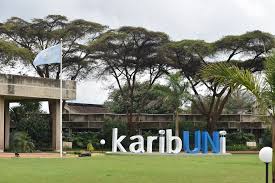
The NGO magnet
Where the UN goes, international NGOs often follow. Nairobi today hosts some of the most prominent organizations in the world. Oxfam, Médecins Sans Frontières (Doctors Without Borders), Save the Children, the International Rescue Committee, and CARE International all operate significant regional or continental offices from the city. Humanitarian giants like the Norwegian Refugee Council and the Danish Refugee Council are firmly entrenched, drawn by Nairobi’s role as a staging ground for operations in fragile states such as Somalia, South Sudan and the Democratic Republic of Congo.
The World Food Programme and the International Organization for Migration run large field operations from Nairobi, as do dozens of smaller specialized NGOs tackling everything from public health and food security to peacebuilding and women’s empowerment. This concentration has created a dense ecosystem of expertise, partnerships and donor networks—an ecosystem rare in the Global South.
Why Nairobi?
So what makes Nairobi the destination of choice for diplomats, expatriates and international organizations?
Geography. Nairobi sits at the heart of East Africa, a short flight from Addis Ababa, Juba, Dar es Salaam and Kinshasa. For agencies managing crises in multiple fragile states, its connectivity is invaluable. Jomo Kenyatta International Airport, with direct flights to Europe, the Middle East and North America, ensures the city is plugged into global supply chains and decision-making hubs.
Relative stability. While its neighbors have faced recurring bouts of instability, Kenya has remained largely peaceful and predictable. That doesn’t mean it has been free from turbulence—the 2007–08 post-election violence is a reminder of its fragility—but compared to the volatility of Somalia or South Sudan, Nairobi is seen as a safe bet.
Adequate infrastructure and amenities. Nairobi offers reliable internet, banking systems, English-speaking schools, world-class hospitals and a thriving expatriate community. The city’s leafy suburbs, from Karen to Runda, offer secure living environments that appeal to international staff bringing families. Add the bonus of safari parks within driving distance, and the lifestyle appeal is hard to ignore.
Diplomatic density creates a multiplier effect. The more organizations that base themselves in Nairobi, the more it makes sense for others to do the same. Embassies, UN agencies, NGOs, think tanks and media organizations reinforce one another, creating a gravitational pull that is self-sustaining.
Relatively cool climate. Very few places on earth offer a stable cool climate year in year out like Nairobi does. It’s never too hot neither is it too cold. Yes, there are months like June and July where temperatures drop significantly but it’s never to winter levels. The consistency of the climate all year long attracts diplomats and high-level immigrants who work for INGOs.
Relatively cheaper prices. Here’s the thing, compared to New York, Geneva, London and other big cities, a diplomat coming from the global North find the cost of necessities and luxuries cheaper and more affordable.
A city of contradictions
Yet, Nairobi’s status as a global hub is not without contradictions. The gleaming UN complex in Gigiri, with its manicured lawns and tight security, often feels worlds apart from the sprawling informal settlements only a few kilometers away, where millions of Kenyans struggle daily with poverty, unemployment and poor services. Diplomats and aid workers can sometimes seem like they inhabit a parallel Nairobi—one of SUVs, diplomatic plates and international schools—while ordinary residents navigate matatus, erratic electricity and rising food prices.
This paradox is not lost on observers. It raises a deeper question: can a city simultaneously be the nerve center of global humanitarianism while grappling with its own urban inequalities? For many NGOs, that juxtaposition is precisely what makes Nairobi both compelling and uncomfortable. It is a city that embodies the very challenges—rapid urbanization, inequality, environmental stress—that UN-Habitat and its NGO partners are mandated to address worldwide.
The road ahead
As Africa becomes increasingly central to global diplomacy—whether on climate change, migration, or peace and security—Nairobi’s importance will only grow. The city’s hosting of the 2023 Africa Climate Summit underscored its status as a platform where global and African leaders converge to negotiate the future.
But Nairobi must guard its reputation. Issues like corruption, political uncertainty, traffic gridlock and security lapses can undermine its attractiveness. Competing cities such as Addis Ababa, already home to the African Union, and Kigali, with its reputation for efficiency, are keen to chip away at Nairobi’s dominance.
Still, history, geography and diplomacy have conspired to give Nairobi a unique place in the world. It is a city where the Global South speaks to the North on more equal terms, where humanitarian crises are coordinated and global debates are shaped. For diplomats and aid workers alike, Nairobi is more than just a posting. It is the front row seat to Africa’s story in the 21st century.
“Nairobi embodies the very challenges—urbanization, inequality, environmental stress—that UN-Habitat and its NGO partners are mandated to solve globally.”

